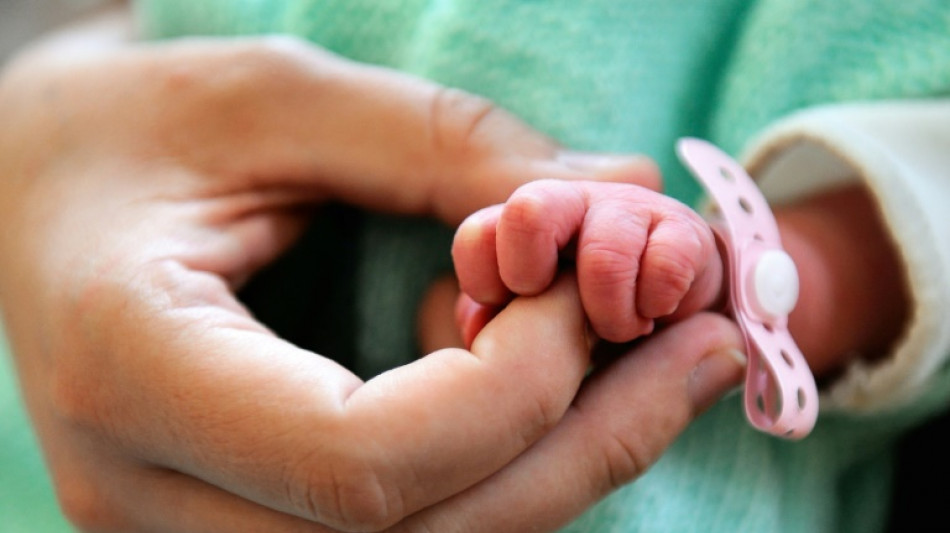
-
 Man shot by Cuban coast guard wanted to spark uprising: ally to AFP
Man shot by Cuban coast guard wanted to spark uprising: ally to AFP
-
Prada unravels, layers and reveals at Milan Fashion Week

-
 Brentford boss Andrews signs new long-term contract
Brentford boss Andrews signs new long-term contract
-
Appeal court drops rape trial for ex-France striker Ben Yedder

-
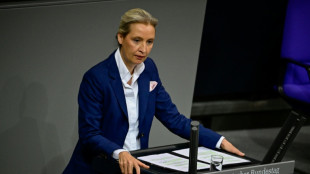 German court rules spy service may not label AfD 'extremist' for now
German court rules spy service may not label AfD 'extremist' for now
-
India thrash Zimbabwe in T20 World Cup, S.Africa into semi-finals

-
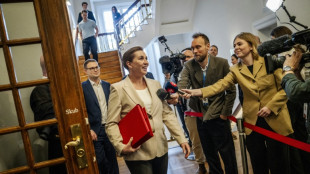 Danish PM calls March 24 election amid US, Russia tensions
Danish PM calls March 24 election amid US, Russia tensions
-
Hillary Clinton calls for Trump to testify as she faces US House Epstein panel

-
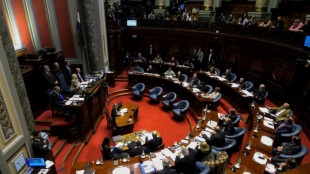 Uruguay becomes first country to ratify EU-South America trade deal
Uruguay becomes first country to ratify EU-South America trade deal
-
Stocks diverge as investors digest Nvidia earnings

-
 Tudor says turning round Tottenham his hardest job
Tudor says turning round Tottenham his hardest job
-
EU says member states can use bloc's funds for 'safe' abortion access

-
 More rain lashes southeast Brazil as death toll hits 54
More rain lashes southeast Brazil as death toll hits 54
-
Carney on route to Asia to promote Canada trade as US ties falter
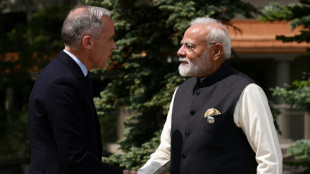
-
 Abhishek, Pandya fire India to 256-4 against Zimbabwe
Abhishek, Pandya fire India to 256-4 against Zimbabwe
-
Irish wing Lowe ruled out of rest of Six Nations

-
 Cuba vows to counter 'terrorist' attacks after clashing with US-based boat
Cuba vows to counter 'terrorist' attacks after clashing with US-based boat
-
Swastikas tagged at former Nazi transit camp near Paris

-
 Calls for heads to roll after feeble Sri Lanka T20 World Cup exit
Calls for heads to roll after feeble Sri Lanka T20 World Cup exit
-
Stocks mixed as investors digest Nvidia earnings

-
 Noosha Aubel: Scandal in Potsdam over severely disabled child
Noosha Aubel: Scandal in Potsdam over severely disabled child
-
Chaos as jihadist relatives left Syrian camp, witnesses say

-
 Mother of Greek train tragedy victim takes on politicians in bid for 'justice'
Mother of Greek train tragedy victim takes on politicians in bid for 'justice'
-
No proven link between Duterte speeches and drug deaths, defence tells ICC

-
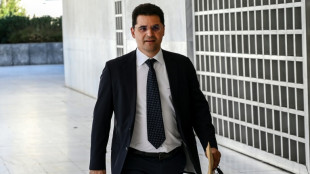 Athens court convicts four over Greece spyware saga
Athens court convicts four over Greece spyware saga
-
Iranian in possible France prisoner swap jailed for a year
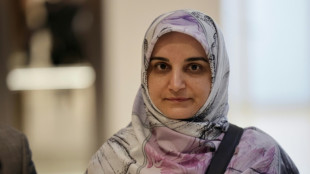
-
 US, Ukraine hold talks in Geneva as Russia says 'no deadlines' to end war
US, Ukraine hold talks in Geneva as Russia says 'no deadlines' to end war
-
English giants dominate line-up for Champions League last-16 draw

-
 Iran, US hold talks in push to avert war
Iran, US hold talks in push to avert war
-
South Africa thrash West Indies in T20 World Cup statement win

-
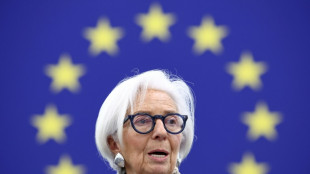 ECB books third straight annual loss
ECB books third straight annual loss
-
Injury forces Marquez to adapt for MotoGP opener

-
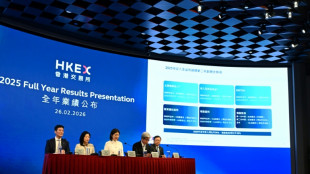 Booming markets propel Hong Kong exchange's profits to record high
Booming markets propel Hong Kong exchange's profits to record high
-
West Indies recover from 83-7 to post to 176-8 against South Africa

-
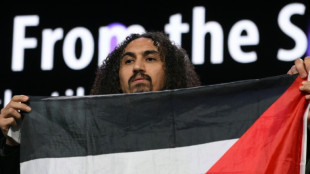 Filmmakers defend Berlin festival chief in Gaza row
Filmmakers defend Berlin festival chief in Gaza row
-
Hong Kong mogul Jimmy Lai wins appeal in fraud case

-
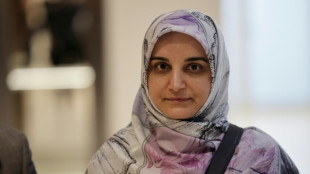 Iranian in possible prisoner exchange faces 'terrorism' verdict in France
Iranian in possible prisoner exchange faces 'terrorism' verdict in France
-
'Street-smart' New Zealand can topple England to make T20 semis: coach

-
 Iran-US talks begin in push to avert war
Iran-US talks begin in push to avert war
-
Merz says Germany, China must overcome trade gaps 'together'

-
 Automaker Stellantis posts massive loss, pivots from EV
Automaker Stellantis posts massive loss, pivots from EV
-
US, Ukraine to meet in Geneva after overnight Russian strikes

-
 Snake-like robot unveiled for Fukushima debris removal
Snake-like robot unveiled for Fukushima debris removal
-
'Public lynching': Senegal cracks down on LGBTQ+ community

-
 Hong Kong sentences father of wanted activist to 8 months in jail
Hong Kong sentences father of wanted activist to 8 months in jail
-
The woman fighting to reclaim her face from Albania's 'AI minister'
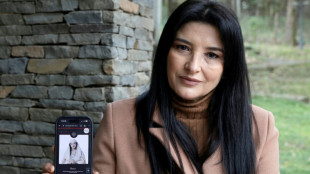
-
 Bulgaria ski station becomes refuge for digital nomads
Bulgaria ski station becomes refuge for digital nomads
-
Thai runner-up party seeks criminal case against election officials

-
 North Korea's Kim shuns South but could 'get along' with US
North Korea's Kim shuns South but could 'get along' with US
-
Spurs win 10th straight, Pistons silence Thunder in battle of NBA's best


World-first IVF trial reduces risk of babies inheriting diseases
Eight healthy babies have been born in the UK using a new IVF technique that successfully reduced their risk of inheriting genetic diseases from their mothers, the results of a world-first trial said Wednesday.
The findings were hailed as a breakthrough which raises hopes that women with mutations in their mitochondrial DNA could one day have children without passing debilitating or deadly diseases on to the children.
One out of every 5,000 births is affected by mitochondrial diseases, which cannot be treated, and include symptoms such as impaired vision, diabetes and muscle wasting.
In 2015, Britain became the first country to approve an in-vitro fertilisation (IVF) technique that uses a small amount of healthy mitochondrial DNA from the egg of a donor -- along with the mother's egg and father's sperm.
Some have called the result of this process "three-parent babies", though researchers have pushed back at this term because only roughly 0.1 percent of the newborn's DNA comes from the donor.
The results of the much-awaited UK trial were published in several papers in the New England Journal of Medicine.
- 'Important reproductive option' -
Out of 22 women to undergo the treatment at the Newcastle Fertility Centre in northeast England, eight babies were born. The four boys and four girls now range from under six months to over two years old.
The amount of mutated mitochondrial DNA -- which causes disease -- was reduced by 95-100 percent in six of the babies, according to the research.
For the other two newborns, the amount fell by 77-88 percent, which is below the range that causes disease.
This indicates the technique was "effective in reducing transmission" of diseases between mother and child, one of the studies said.
The eight children are currently healthy, though one had a disturbance of their heart's rhythm which was successfully treated, the researchers said.
Their health will be followed up over the coming years to see if problems arise.
Nils-Goran Larsson, a Swedish reproductive expert not involved in the research, hailed the "breakthrough".
The new technique offers a "very important reproductive option" for families affected by "devastating" mitochondrial diseases, he added.
- Ethical review -
Mitochondrial donation remains controversial and has not been approved in many countries, including the United States and France.
Religious leaders have opposed the procedure because it involves the destruction of human embryos. Other opponents have expressed fears it could pave the way for genetically engineered "designer babies".
An ethical review carried out by the UK's independent Nuffield Council on Bioethics was "instrumental" in conducting the new research, the council's director Danielle Hamm said Wednesday.
Peter Thompson, head of the UK's Human Fertilisation and Embryology Authority which approved the procedure, said only people with a "very high risk" of passing on a mitochondrial disease would be eligible for the treatment.
Ethical concerns have also been raised over the use of mitochondrial donation for infertility in Greece and Ukraine.
French mitochondrial disease specialist Julie Stefann told AFP that "it is a question of the risk-benefit ratio: for a mitochondrial disease, the benefit is obvious".
"In the context of infertility, it has not been proven," she added.
Oxford University reproductive genetics expert Dagan Wells observed that "some scientists will be a little disappointed that so much time and effort has, so far, only led to the birth of eight children".
Among the children being closely monitored are three that showed some signs of what is known as "reversal", which is still little understood.
It is "a phenomenon where the therapy initially succeeds in producing an embryo with very few defective mitochondria, but by the time the child is born the proportion of abnormal mitochondria in its cells has significantly increased," he explained.
J.Oliveira--AMWN



